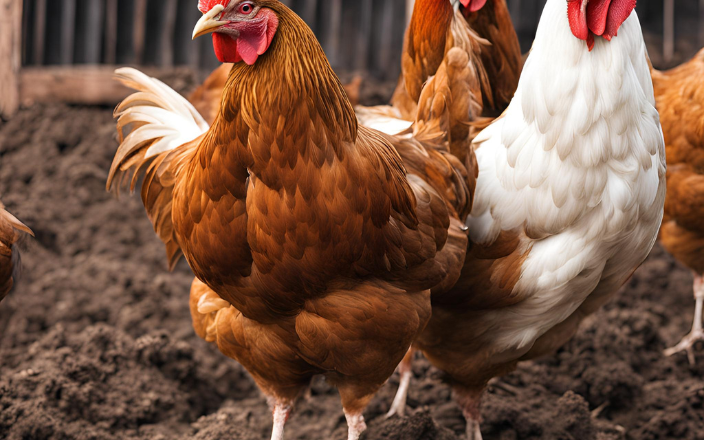The transformation of poultry manure into energy is an innovative approach that addresses both waste management and renewable energy production. Poultry farming generates significant amounts of manure, which, if not properly managed, can lead to environmental pollution. However, this waste can be converted into valuable energy through various processes, contributing to a circular economy and reducing the environmental footprint of poultry farming.
Anaerobic digestion
One of the primary methods for converting poultry manure into energy is anaerobic digestion. This biological process involves the breakdown of organic matter by microorganisms in the absence of oxygen, producing biogas, which is primarily composed of methane and carbon dioxide. The biogas can be used to generate electricity and heat, providing a renewable energy source. Anaerobic digestion also produces a nutrient-rich digestate that can be used as a fertilizer, further enhancing the sustainability of this process.
Pyrolysis
Another method is pyrolysis, a thermochemical process that involves heating the manure at high temperatures in the absence of oxygen. This process produces biochar, bio-oil, and syngas. Biochar can be used as a soil amendment, improving soil health and carbon sequestration. Bio-oil can be refined into various fuels, and syngas can be used for electricity generation or as a chemical feedstock.
Gasification
Gasification is a similar thermochemical process where poultry manure is converted into syngas through partial oxidation at high temperatures. The syngas produced can be used to generate electricity or as a precursor for producing chemicals and fuels. Gasification is highly efficient and can handle large volumes of manure, making it suitable for large-scale poultry operations.
Composting
Composting is another viable option, where poultry manure is aerobically decomposed to produce compost. While not an energy production method per se, composting reduces the volume of waste and produces a valuable soil amendment. The heat generated during composting can be captured and used for heating purposes, adding an energy recovery component to the process.
The integration of these technologies into poultry farming operations can significantly reduce greenhouse gas emissions, mitigate odor issues, and produce renewable energy. Moreover, the by-products of these processes, such as digestate and biochar, can enhance soil fertility and reduce the need for chemical fertilizers, promoting sustainable agriculture.
In conclusion, the transformation of poultry manure into energy is a multifaceted approach that offers environmental, economic, and social benefits. By adopting these technologies, poultry farmers can turn waste into wealth, contributing to a more sustainable and resilient agricultural sector.
Sources: Available upon request.

